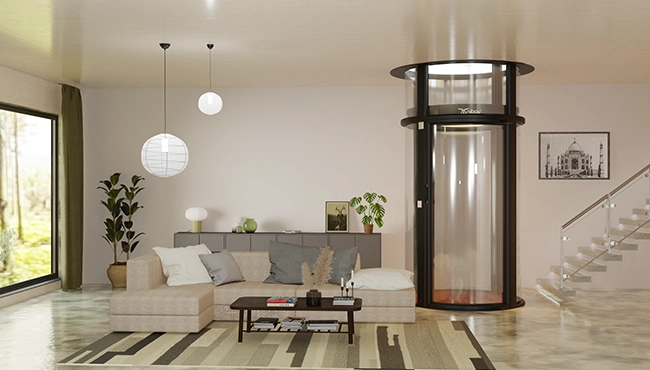As vertical living becomes more common and accessible living takes center stage, more homeowners in Kuala Lumpur are turning to home lifts as a functional upgrade to their properties. Whether it’s for enhancing mobility, future-proofing a residence, or simply elevating everyday convenience, installing a home lift is no longer a luxury—it’s a strategic decision.
But like any major home improvement, it requires careful planning. From understanding local compliance to budgeting for installation, this guide provides a complete overview for anyone considering a home lift in the capital city.
Why Consider a Home Lift in KL?
Kuala Lumpur is a bustling city where homes are being designed taller rather than wider. Double and triple-storey homes are common, especially in urban and suburban neighborhoods. For families with elderly members, individuals with mobility challenges, or those simply wanting to make life easier, home lifts have become an increasingly popular solution.
And let’s face it—there’s a certain elegance in pressing a button and gliding between floors.
Local Building Regulations You Should Know
Before jumping into your elevator installation journey, it’s essential to understand that Kuala Lumpur has its own set of building codes and safety regulations related to home lifts.
1. Permit Requirements
In most cases, installing a home lift in KL will require approval from the local municipal council (DBKL or relevant local authority). While requirements vary by property type, common paperwork includes:
- Engineering drawings
- Structural integrity reports
- Safety compliance documentation
- Lift system certification
Make sure your installer is familiar with DBKL or Selangor State requirements if you’re located in a surrounding area.
2. Safety & Accessibility Standards
Malaysia generally follows guidelines aligned with international standards (such as EN81 or ISO standards). These regulations ensure:
- Emergency stop functions
- Automatic descent during power failure
- Enclosed lift shafts or tubes
- Regular maintenance protocols
Failing to meet these standards can not only result in fines but also compromise occupant safety.
3. Retrofitting Approval
If you’re planning to retrofit a lift into an existing home rather than a new build, an engineer’s assessment will be required to ensure the structure can support the changes. Some older homes may need wall reinforcement or ceiling modifications, which adds time and cost.
Price Range for Home Lifts in Kuala Lumpur
So, how much does it cost?
Generally speaking, home lifts in Kuala Lumpur fall within the MYR 139,000 to MYR 279,000 range, depending on multiple factors. Here’s what influences the price:
A. Type of Lift
- Vacuum (Air-Driven) Lifts: Ideal for compact homes, minimal construction needed.
- Hydraulic Lifts: Smooth operation, but more expensive installation due to pits or machine rooms.
- Traction or Cable-Based Lifts: Best for buildings with more than three floors.
- Shaftless Lifts: Economical, but best suited for two-storey homes.
B. Number of Stops
Each additional floor adds to the overall price due to more complex engineering and equipment. For instance, a 2-stop lift might start at MYR 145,000, while a 4-stop system could easily reach MYR 260,000 or more.
C. Customization & Materials
Custom finishes such as glass enclosures, stainless steel interiors, touchscreen panels, or special flooring significantly increase the price. Standard finishes will keep you closer to the lower end of the range.
D. Installation Site Complexity
New builds allow easier integration of a lift, often reducing installation time and costs. Retrofitting into an existing home may involve additional construction work, especially in double-brick homes or where ceiling height is limited.
E. Energy Efficiency & Tech Features
Models that offer smart home integration, battery backup systems, and low-energy motors may have a higher upfront cost but will save money in the long run through reduced power consumption.
Installation Timeline: What to Expect
Contrary to what many people think, installing a home lift doesn’t take months. In most cases, the timeline can range from 2 to 10 days depending on complexity.
Here’s a rough outline:
| Phase | Estimated Duration |
| Site inspection & planning | 1 – 2 days |
| Engineering assessment | 2 – 5 days |
| Lift installation | 2 – 7 days |
| Safety inspection & test | 1 day |
Tip: Always factor in additional days for permit approval or unexpected construction hiccups.
Installation Tips: Getting It Right the First Time
1. Plan Early—Especially for New Builds
If you’re building a new home, mention your intent to install a lift as early as the blueprint stage. It’s far more efficient to integrate a lift shaft during initial construction than to rework a completed home.
2. Get a Structural Evaluation
This is particularly critical for retrofitted lifts. Engage a qualified structural engineer to assess floor load, ceiling height, and wall strength.
3. Work with Certified Installers
Always choose installers with a proven track record and proper licenses. Make sure they’re familiar with Malaysian regulations, especially in the KL area.
4. Think About Power Backup
KL is prone to the occasional power outage. Consider models that come with automatic descent or battery backup systems to ensure you’re never stuck mid-ride.
5. Choose What You Need—Not What’s Flashy
It’s easy to be tempted by sleek displays, exotic materials, or high-end audio systems. Focus on what adds long-term value—such as safety features and durability—rather than surface-level luxuries.
Long-Term Costs & Maintenance
Owning a lift doesn’t stop at installation. Be sure to account for:
- Annual maintenance contracts: Typically MYR 1,500–3,000
- Part replacements: Varies by model and usage
- Emergency servicing: Check if it’s included in the warranty
A well-maintained lift can last 20+ years, making it a worthwhile investment.
Final Thoughts
Whether you’re in Bangsar, Cheras, Mont Kiara, or any other KL neighborhood, installing a home lift is no longer seen as indulgent—it’s a proactive choice that enhances lifestyle, safety, and home value.
But the key to a successful installation lies in preparation. Understanding local regulations, knowing what you’re paying for, and choosing the right team can make all the difference between a smooth ride and a bumpy experience.
If you’re ready to make vertical living easier and more elegant, there’s never been a better time to explore your options—right here in the heart of Kuala Lumpur.


Comments are closed.